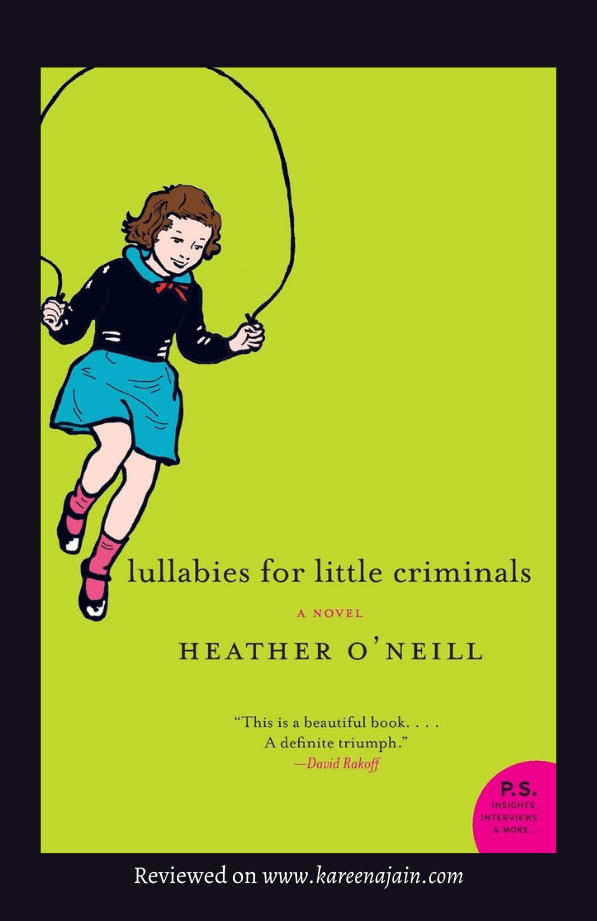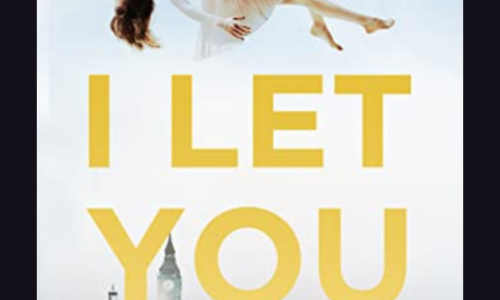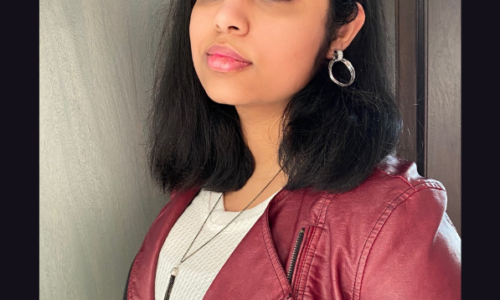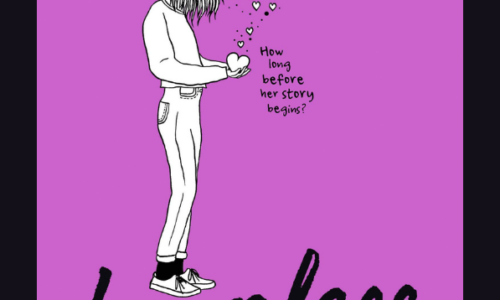“Childhood is the most valuable thing that’s taken away from you in life, if you think about it.”
Lullabies for Little Criminals by Heather O’Neill is the gut-wrenching story of young Baby, living with her single father, Jules, hopping from cheap apartment to cheap apartment in the red-light district of Montreal. Jules had Baby when he was only fifteen years old, and eleven years later, Baby is a young girl who creates stories and tries to find beauty in the little corners of her life, her father’s drug addiction and homelessness painting a bleak backdrop for her childhood. The novel follows Baby for two years, following her through her stay at an orphanage when her father is admitted to a hospital for TB, to yet another move after he gets back, to her new job with a man who makes her feel loved and cherished and special. Baby grows up on cruel streets, where she’s poor enough that her peers make fun of her and sweet enough that she soon catches the attention of the local pimp. Baby is not naive: she knows about her father’s addiction and the cruelty of men to young girls like her, but she finds herself trapped by pretty words and prettier gifts; trapped in such a way that she decides to turn away from the father that neglects her in favor of the pimp who sells her. As Baby grows, she matures much faster than any child should, understanding that this is not a good situation for her. She tries to defy the man she works for, attempts to leave with the help of a classmate, but when that ultimately backfires, Baby comes to understand that the only one who can save her is herself.
“From the way that people have always talked about your heart being broken, it sort of seemed to be a one-time thing. Mine seemed to break all the time.”
Baby’s story is one of lost innocence and fierce determination. O’Neill’s writing is painfully real in it’s depiction of children like Baby – children who deserved to be loved, but had been born and raised in the worst parts of the world. Baby’s journey is full of sorrow and wonder. You see the beauty that she sees in each new apartment she lives in, every fable she creates in her head, every ragged toy she has. You understand the pain, however muted by her childlike narration, of her life; how she yearns for warmth and safety and to be taken seriously for once in her life. O’Neill’s descriptions of Baby’s homes are stark and true, a world of homelessness and depravity tinted rose through Baby’s eyes. This child knows what’s right and what’s wrong, but she is slow to understand the insults to her own body through the pimp who lures her with promises of love and drugs. You watch Baby mature quickly; watch as she grows to understand that what she is given is not love, but a toxic way for him to control her. You watch as she grows up and tries to find a better life for herself. O’Neill’s characters are made real through her writing, shining through with Jules’ addiction and the pimp’s cruelty. But Baby’s character and story is the brightest of them all, one fiction that represents so many unfortunately true stories – at once a piercingly cruel and hopeful tale of a young girl’s journey to grow up in a world so intent on beating her down.
“When I opened a book now, I was seized with desperation. I felt as if I was madly in love. It was as if I were in a confession booth and the characters in the book were on the other side telling me their most intimate secrets. When I read, I was a philosopher and it was up to me to figure out the meaning of things. Reading made me feel as if I were the center of the universe.”
Available for purchase at:



